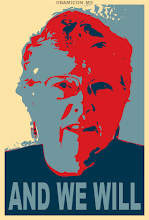Words to Guide a Life Over a Century
UNCASVILLE, Conn.
MUNDO wigo, the Creator is good, the elders taught her from the time she drew her first breath on Mohegan Hill on June 15, 1899.
It was around the last solstice of a dying century in a culture that had been pronounced all but dead as well, but they said it over and over, evoking thankfulness, evoking faith. I have nothing to eat today, Mundo wigo, but the Creator is good and the sun is shining. The weather has been terrible, and I can't get out of the house, Mundo wigo, but I have my legs, and I can walk. Our people are scattered and our resources scarce, Mundo wigo, but we will survive.
By all accounts, Gladys Tantaquidgeon never doubted it. She grew up in a world at once seemingly passing away and as permanent as the rocky soil and harsh landscape of oak, maple, pine and cedar. Until Gladys's first birthday, according to a biography by her grandniece Melissa Tantaquidgeon Zobel, her mother bit the baby's fingernails, instead of cutting them, to prevent her from ever becoming a thief. Her hair was trimmed when the moon was waning, to keep it thick, and her shoes were turned over at night to prevent bad dreams. She was put to bed every night before the whippoorwill called, so she wouldn't be captured by the Makiawisug, the mischievous little people of the forest.


Links to this post:
Create a Link
<< Home